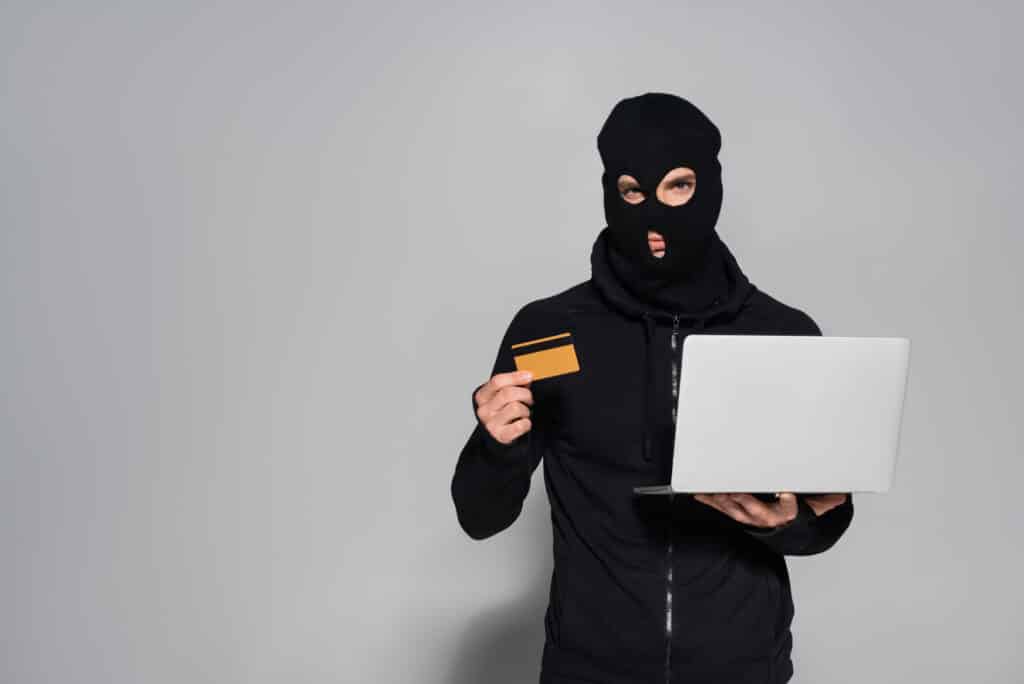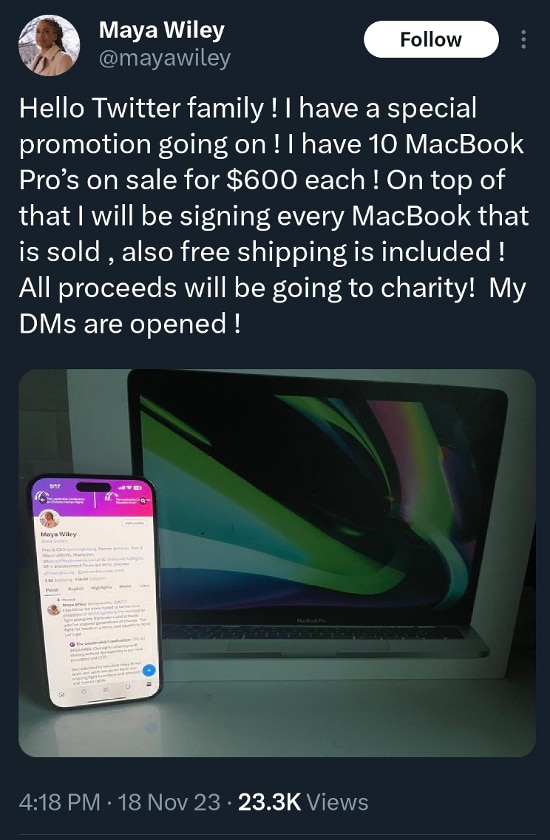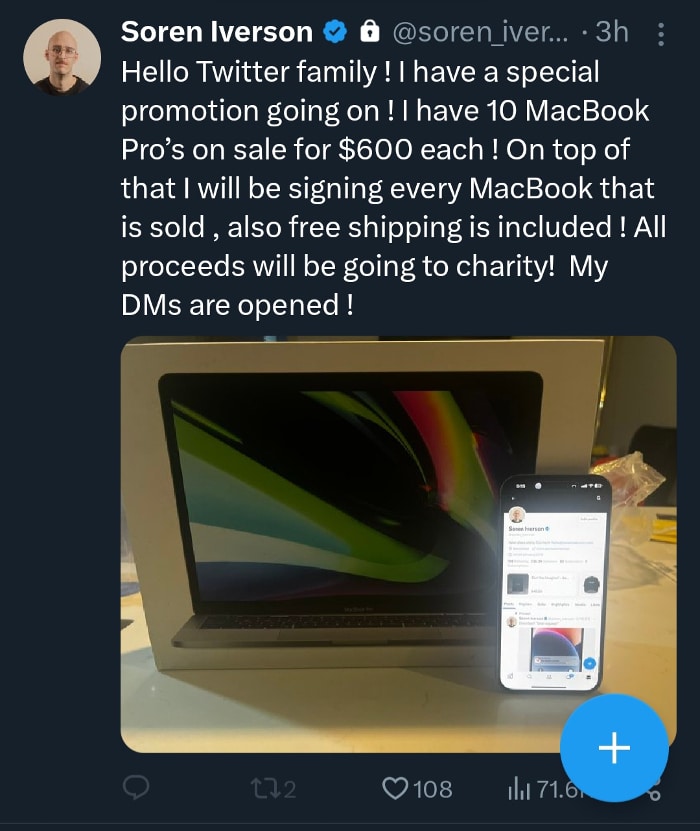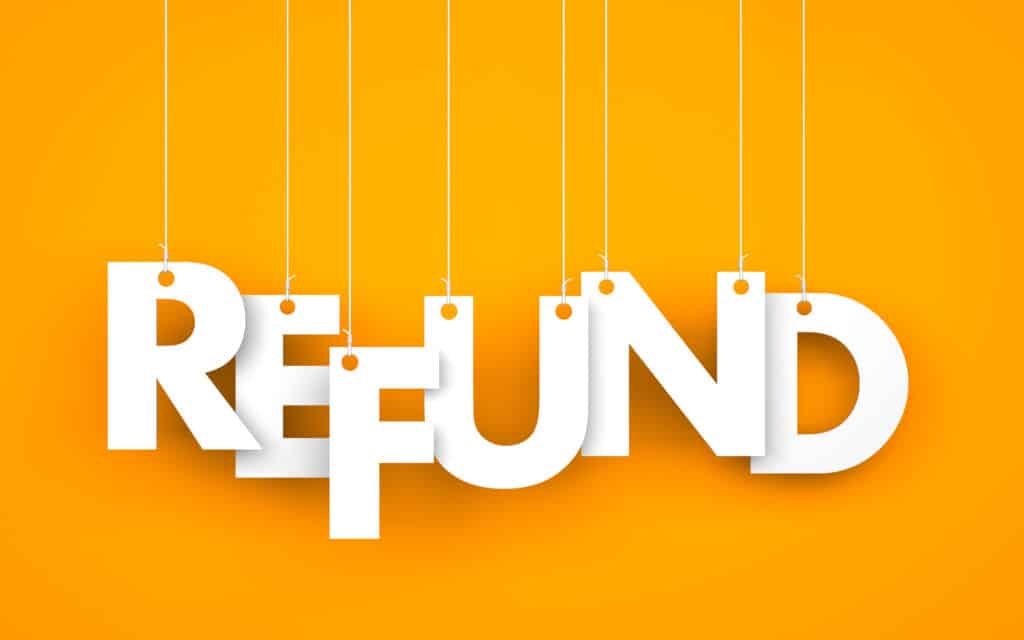Last updated on January 15th, 2024 at 04:02 am

Ever seen a post from a social media influencer selling signed MacBook Pros? Priced at $600 each, you might be tempted to buy one. If you do, however, you’ll soon be disappointed because it’s a scam!
How the scam works
Here’s how the scam works. Fraudsters first hijack the X (formerly Twitter) account belonging to a celebrity or influencer. They then make a post like this: “Hello Twitter family ! I have a special promotion going on ! I have 10 MacBook Pro’s on sale for $600 each ! On top of that I will be signing every MacBook that is sold , also free shipping is included ! All proceeds will be going to charity ! My DMs are opened !”

The limited number of MacBooks available, together with their cheap price, spur people to act quickly and overlook red flags like spelling and grammatical errors. The fact that the post comes from a trusted account also adds legitimacy, making people think the offer is real.
If a potential buyer sends a DM to the influencer’s account, the scammers will instruct them to pay via a method like Cash App or Apple Pay, according to Mashable. The scammers will then ghost the victim, taking the cash and sending nothing in return.
Unfortunately, when the victim realizes they’ve been scammed, they often have little recourse. That’s because the kinds of payment methods accepted by the scammers make it difficult for victims to get their money back.
History of the scam
In March 2023, Mashable reported that accounts belonging to rock band Smash Mouth, actress Anna Taylor Joy, and actor Johnathan Frakes had all been compromised by fraudsters running the MacBook scam. 9 months later, the scammers are still at it.

Soren Iverson, known for his “unhinged” mock ups of fake new features for popular apps, had his X account hacked and used to promote the MacBook scam in December. Worse, after Iverson regained access to his account, the fraudsters hacked into it again and continued making posts about the scam.
Wanda Denton, known for accidentally inviting a stranger to Thanksgiving and then becoming close friends with him, was also hacked in December. The fraudsters personalized the MacBook scam to her followers, claiming “one lucky person who buys a MacBook will be invited to thanksgiving!!!”
Fortunately, people are now recognizing this scam and some are even posting parodies of it. However, it will probably continue to pop up until it stops being profitable for the scammers.
What to do if you fall for the scam

If you fall for the scam and “buy” a MacBook from these fraudsters, you may not be able to get your money back. However, it’s always worth reaching out to whichever financial service you used to pay the scammers. Explain the situation to them and request a refund.
Zelle, for example, used to be notorious for not refunding scam victims. However, after an investigation showing users of the money-transfer app had been bilked out of $440 million in 2021, Zelle started reimbursing victims of at least certain types of scams.
Finally, a word of caution: don’t trust anyone who reaches out to you, claiming to be an expert hacker and promising to get your money back. These are almost certainly recovery scammers and will only steal more of your money.
The takeaway
Social media is a scammer’s paradise, so be extra cautious when scrolling on your favorite platform. Don’t be manipulated into acting quickly and not thinking critically, and watch out for red flags like spelling and grammatical errors in posts and DMs. And remember that just because a post is made by a high-profile account, it doesn’t mean it is legitimate.
